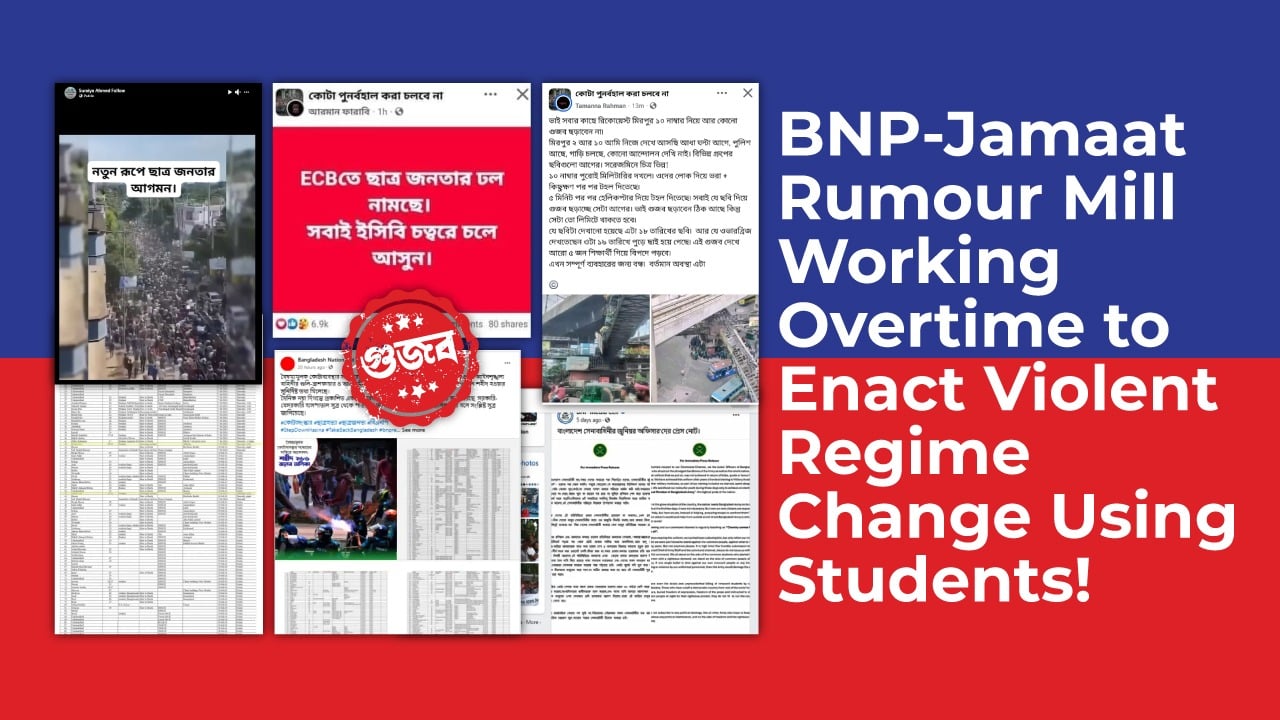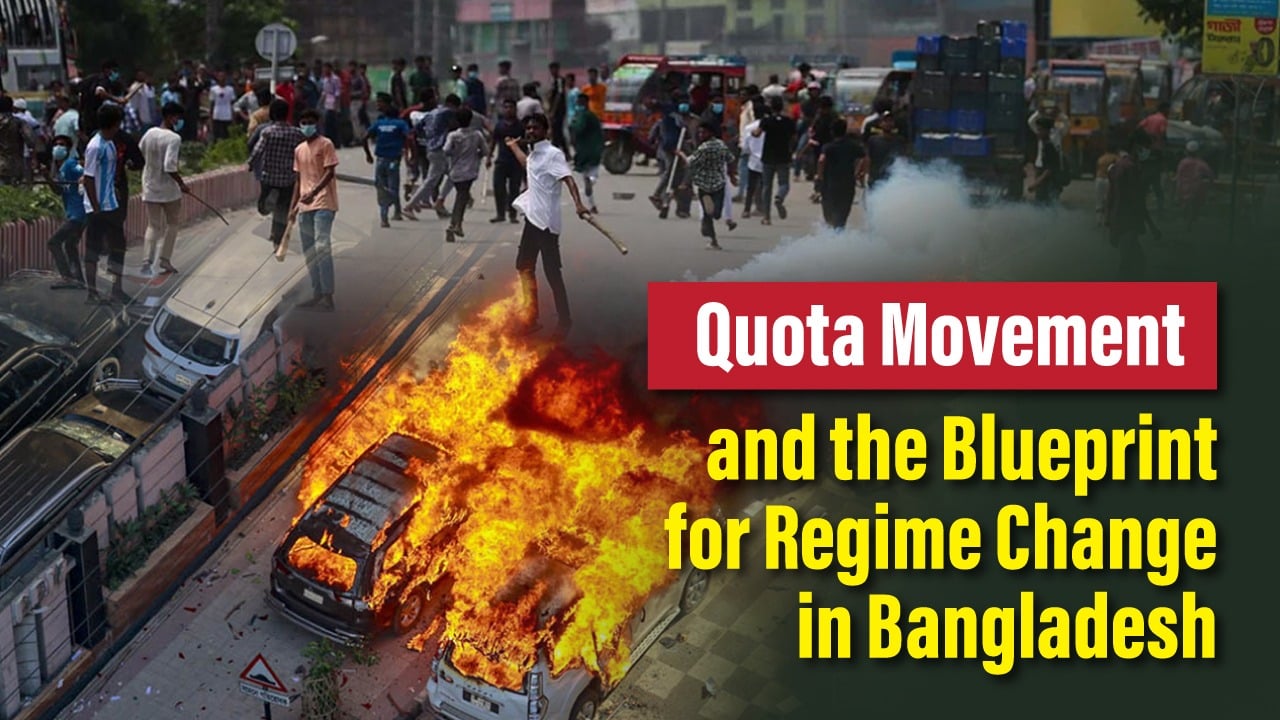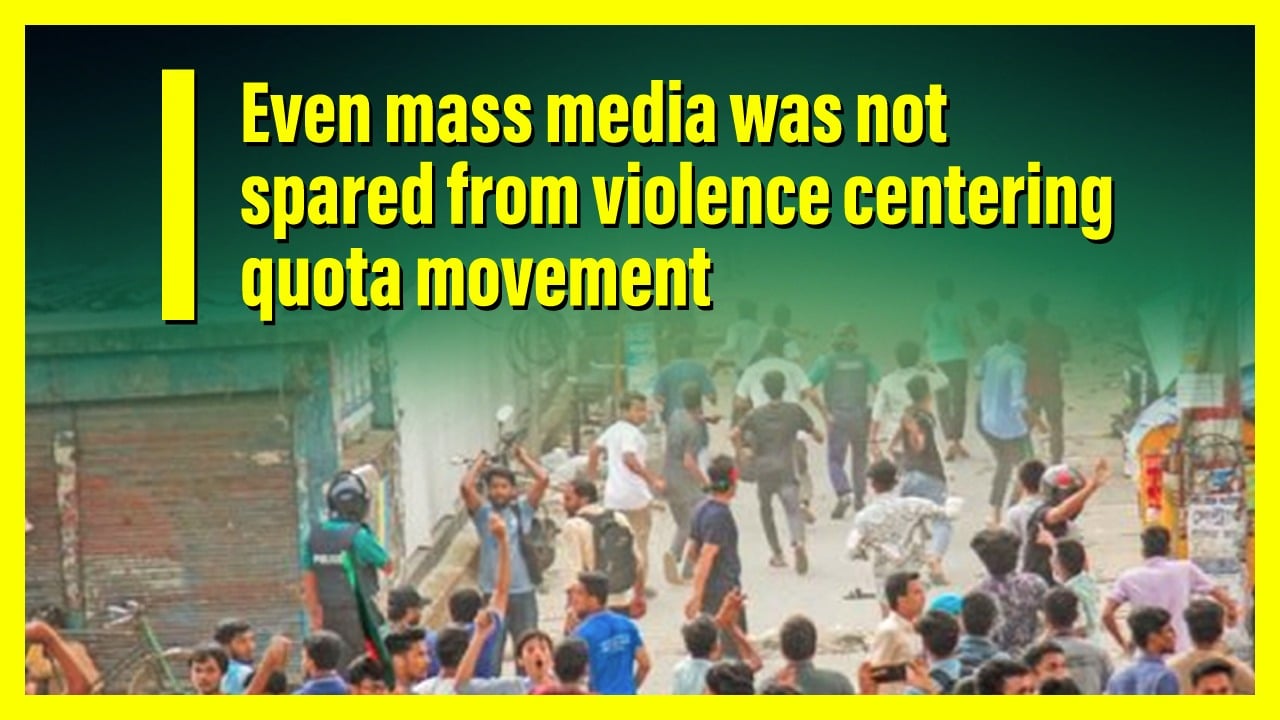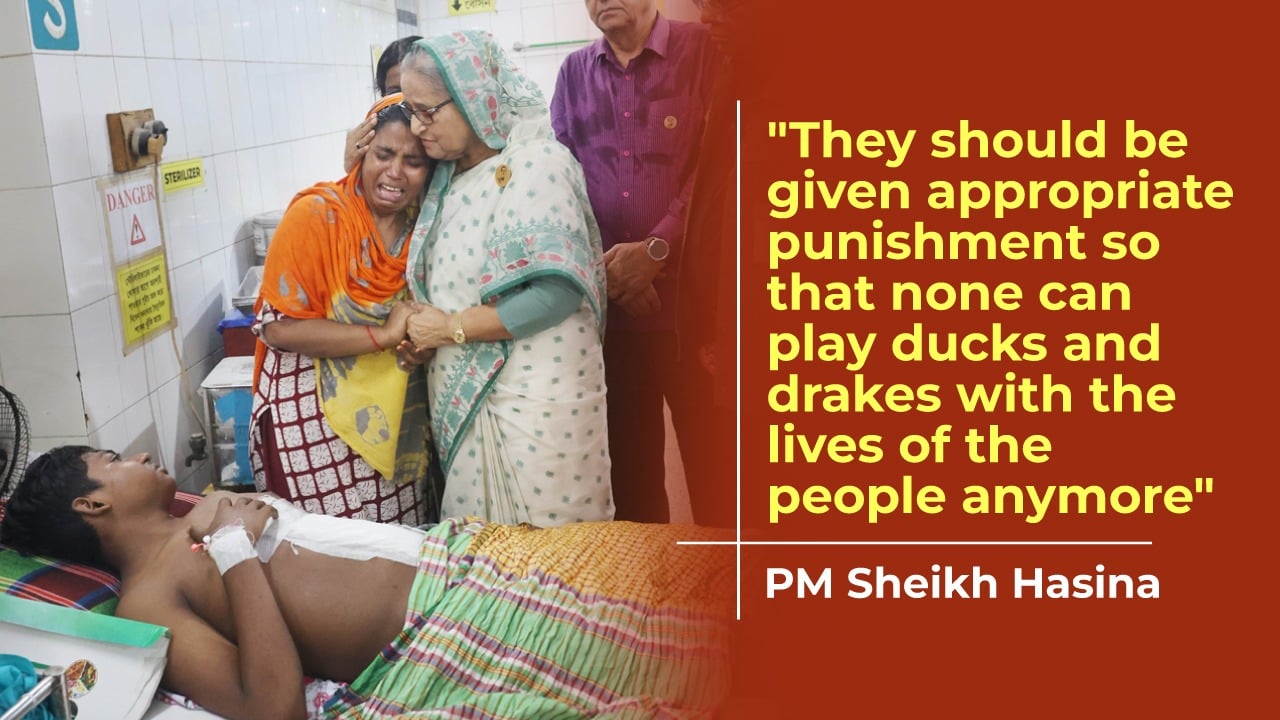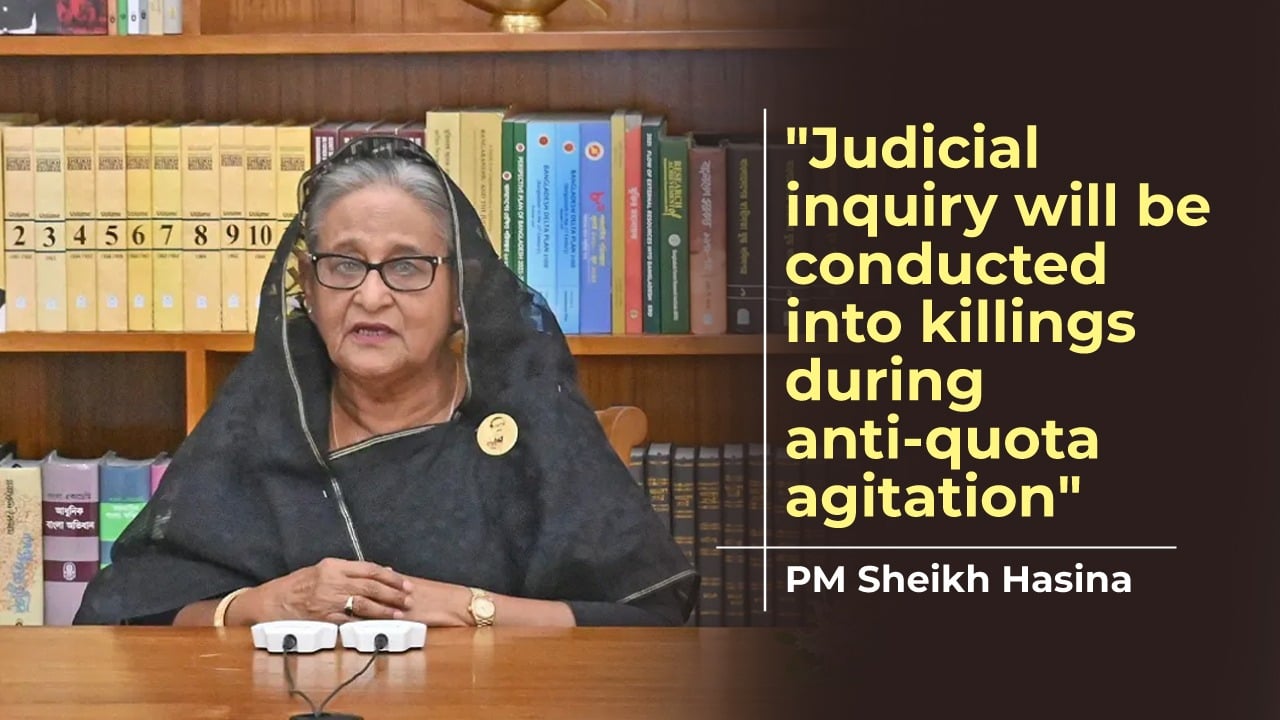4052
Published on May 28, 2023Bangabandhu Sheikh Mujibur Rahman's tireless struggle for 23 years led to the birth of Bangladesh as an independent nation, standing proudly among the global community. Later, he worked tirelessly to build the war-torn country and establish Bangladesh in the international arena. Beyond his national efforts, Sheikh Mujib emerged as an inspiration for oppressed people worldwide, inspiring freedom-seeking individuals across Europe and Africa. Bangabandhu was internationally recognized and respected as a friend of hardworking people, a soul dedicated to peace and humanity. In recognition of his remarkable contributions, Bangabandhu was awarded the prestigious Joliot-Curie Medal of Peace by the World Peace Council on May 23, 1973. This achievement of Bangabandhu as a champion of peace was the first international honor for independent Bangladesh.
Later, Bangabandhu's daughter Sheikh Hasina bravely fought against extremist forces to establish a system in Bangladesh that focused on compassion and care for people. She followed in her father's footsteps, Bangabandhu Sheikh Mujibur Rahman, and as the Honorable Prime Minister, Sheikh Hasina continues to work towards achieving social and humanitarian goals in Bangladesh. Because of these efforts, the United Nations has recognized Bangladesh as a model for managing disasters and for development, among other things. Through successful disaster management, creating a society without terrorism, and promoting an inclusive economic system, Sheikh Hasina has made Bangabandhu's dream of freedom a reality for the people of Bengal.
Under the BNP-Jamaat coalition government, Khaleda Zia and Tarique Rahman damaged the country's reputation by portraying Bengalis as extremists, corrupt, and impoverished. However, Sheikh Hasina, through her compassionate and sustainable development initiatives, has restored the dignity of the Bengali people. Bangladesh is now recognized as a global model for development. Despite facing economic downturns, a global pandemic, and international conflicts, Bangladesh's remarkable progress over the past 15 years has positioned it as an emerging and promising nation in the digital age.
What is the Joliot-Curie Peace Medal and why Bangabandhu received this recognition?
Some well-known individuals who have been honoured with the 'Juliot Curie Peace Medal' include Martin Luther King from the USA, Fidel Castro from Cuba, Gamal Abdel Nasser from Egypt, Salvador Allende from Chile, Pablo Neruda from Chile, Nazim Hikmet from Turkey, Julius Fucik from Czechoslovakia, Pablo Picasso from Spain, Paul Robeson from the USA, Yasser Arafat from Palestine, Leonid Brezhnev from the Soviet Union, and Julius Nyerere from Tanzania, among others.
The 'Joliot Curie Peace Medal' was created in 1950 to recognize individuals who have played a significant role in opposing imperialism, and fascism, and promoting humanity to establish global peace. The medal took into account the lifelong efforts of Bangabandhu towards peace when considering recipients for this prestigious award.
From his days as a student, Sheikh Mujib actively participated in the struggle for the rights of oppressed people and advocated for non-violence. After the partition of the country in 1947, he led the Bengali language movement, striving to achieve rights through peaceful means. However, his commitment to non-violence led to his imprisonment for an extended period. In 1952, he started a hunger strike while in jail to protest against the shooting of peaceful student protesters by the Pakistani authorities. His deteriorating health compelled the authorities to release him, fearing widespread unrest. In the same year, as a young leader of the Awami League, he attended the China Peace Conference.
Later, Sheikh Mujibur Rahman participated in the World Peace Council conference held in Sweden in 1956. During the event, he expressed his strong commitment to world peace, stating, "World peace is the principle of my life." I am with the oppressed, repressed, exploited and freedom-seeking people – no matter where they live. We want peace to be maintained everywhere in the world, and it should be consolidated.”
Before the Partition in 1946, during the Calcutta riots, Sheikh Mujibur Rahman, as a student leader under Chief Minister Hussain Shaheed Suhrawardy, worked tirelessly to establish peace. He actively campaigned to prevent religious riots and bravely risked his life to protect everyone, regardless of their religious affiliation. Whether it was Muslims being attacked by Hindus or Hindus being attacked by Muslims, Sheikh Mujibur Rahman intervened to save and safeguard both communities.
The traumatic riots of 1946 had a profound impact on Bangabandhu, leading him towards a non-communal political stance. So he always said, “First I am human, then Bengali, then Muslim.” Based on this non-communalism, later Bangabandhu unified the nation for the liberation struggle of Bengalis and to achieve independence.
Bangabandhu strongly opposed war and violence throughout his life. After Bangladesh gained independence, he clearly stated in the country's foreign policy, "Friendship to all, Malice towards none." Even in the challenging first three months of post-war Bangladesh, he took the lead in the rehabilitation efforts for approximately 20 million displaced people. One of his primary goals was to rebuild the destroyed homes of one crore refugees who returned from India, as well as provide housing for another crore of internally displaced people through government initiatives. Following in her father's footsteps, the current Prime Minister Sheikh Hasina has continued this noble ideal and has constructed homes for around one million homeless individuals through the Ashrayan project.
Humanity and World Peace: Bangabandhu to Sheikh Hasina
Awami League Chief and Prime Minister Sheikh Hasina is following the path of peace set by Bangabandhu. Therefore, she ensured the punishment of criminals against humanity during the Liberation War through a transparent and long trial process. The killers of the Father of the Nation have also been brought to justice through the normal judicial process. Bangladesh stands upright in the world today due to the strong will and determination of Bangabandhu's daughter, who is motivated by the ideals of her father.
When religious extremists tried to unsettle the country by spreading rumours, the BNP-Jamaat clique planned to take over the government illegally through deadly means during the pandemic. However, Sheikh Hasina, as the leader, has remained steadfast in her dedication to the well-being of the general public and has worked tirelessly with a calm and composed mindset.
Sheikh Hasina was determined to protect the lives of the people and the country's economy during the difficult times of the pandemic. As the government leader, she regularly communicated with the public through television and the Internet to keep them informed. The united efforts of the Bengali nation led to positive results. No one had to endure starvation because of Sheikh Hasina's comprehensive programs for prevention and assistance. Her forward-thinking approach has made Bengalis a shining example globally for effectively addressing the challenges posed by the coronavirus.
In addition, Sheikh Hasina bravely disregarded various conspiracies and took bold actions such as constructing a multi-purpose bridge over the mighty Padma River. Throughout the years, she faced numerous mockery and jokes. Even having the highest power in the government, she did not take any steps to punish any of the miscreants without justice. Instead, she responded to all critiques through development and constructive activities. Together with her party's leaders and members, she transformed the hostile nature of politics in Bangladesh by supporting and standing with farmers, workers, and vulnerable individuals in times of danger.
The United Nations has also acknowledged the village-centred community healthcare program initiated by Prime Minister Sheikh Hasina, which aims to provide healthcare services to every individual in the country. Recently, a resolution on community-based health care in Bangladesh was unanimously recognized by the United Nations. This historic resolution, titled 'Community Clinic Based Primary Health Care: A Participatory and Inclusive Approach to Achieving Universal Health Services,' internationally recognizes Prime Minister Sheikh Hasina's remarkable and innovative leadership in establishing a model of primary health care in Bangladesh based on community clinics and public-private partnerships.
The United Nations member states widely acknowledged the effective and innovative initiative of Prime Minister Sheikh Hasina in establishing community clinics, which was referred to as 'The Sheikh Hasina Initiative' in the resolution proposed by Bangladesh. This accomplishment demonstrates Bangladesh's dedication to enhancing public healthcare and promoting equitable access to global healthcare services. The successful implementation of the resolution will play a crucial role in enhancing the healthcare of billions of people worldwide through the introduction of health systems based on community clinics.
Sheikh Hasina, the daughter of Bangabandhu, has consistently countered both domestic and international criticisms through positive actions. The construction of the Padma Bridge, which was once considered an unattainable dream by many, has now become a reality through self-funded efforts. Thanks to the unwavering determination of Bangabandhu's daughter, the Padma Bridge has become a powerful symbol of Bangladesh's strength and resilience on the global stage.
Prime Minister Sheikh Hasina has transformed Bangladesh into a sovereign, dignified, and technologically advanced country, in line with the vision of her father, Bangabandhu Sheikh Mujibur Rahman. The younger generation will surely free the nation from the clutches of extremism and spread the message of peace across Bengal's skies, symbolized by a flying dove. Bangabandhu laid the groundwork for peace in the lives of the people of Bengal through the establishment of Bangladesh, and we are now progressing on the path to a Smart Bangladesh under the leadership of Bangabandhu's daughter.
